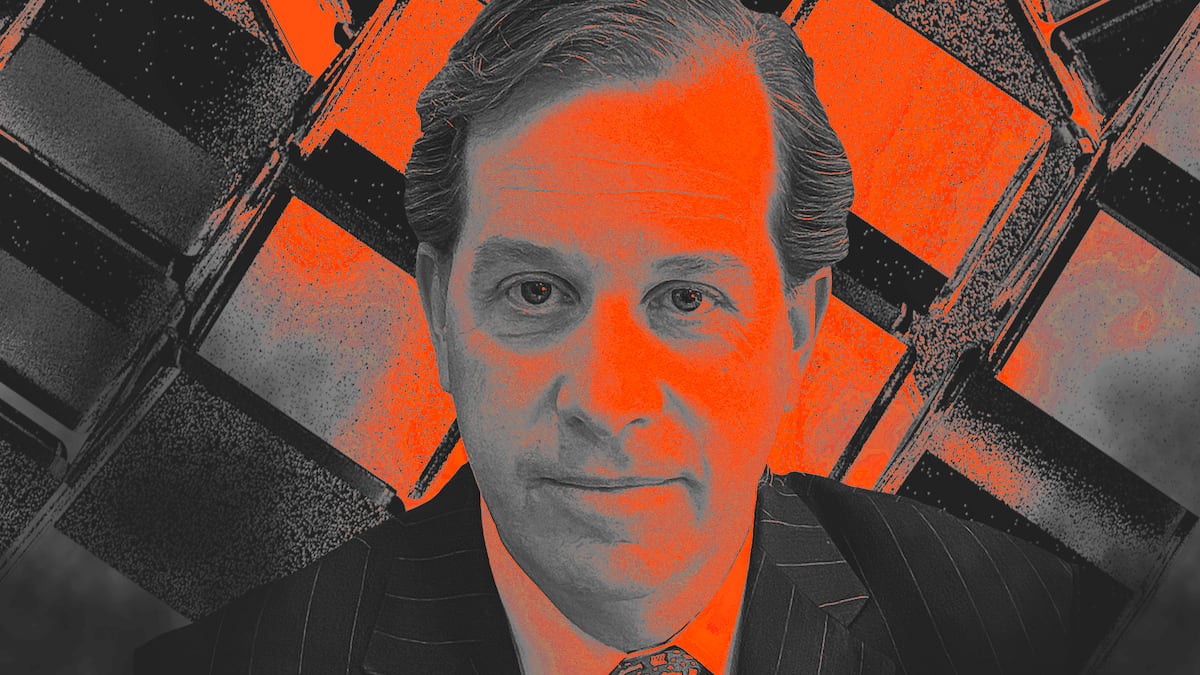This year cryptocurrency founders have decried the Biden Administration’s crackdown on cryptocurrencies as Operation Choke Point 2.0, a campaign to emasculate the industry.
Now a prominent litigator says it’s only a matter of time before the industry sues the administration to stop what many call an orchestrated attempt to neutralise the digital assets business in the US.
“You’ve got people with large sums of money being affected in ways that are illegal, and typically in America, that leads to litigation,” David Thompson, the managing partner at Cooper & Kirk, told DL News. “Many people [in the crypto industry] are interested in retaining me to sue.”
Pornography and payday lending
With many top names — Coinbase, Kraken, Binance, to name a few — swept up in the dragnet, industry leaders are eager to fight back. Thompson, a Harvard-educated lawyer with 30 years of experience in making government overreach cases, may lead the charge.
In 2019, he got banking regulators to settle a civil case against the Obama Administration for Operation Choke Point, an initiative to coordinate action across regulatory departments against industries deemed harmful to consumers, such as pornography and payday lending.
Now he’s setting his sights on similar action. In April, Thompson co-authored a whitepaper that lays out a legal battle plan. To begin with, he argues federal banking regulators are overstepping as they work to cut off crypto ventures from their banking partners.
‘When a federal government comes in and says of an entire industry, ‘This is risky, you need to be very careful doing business with these people’, that is stigmatising.’
— David Thompson
Coming at the same time the US Securities and Exchange Commission and the Commodity Futures Trading Commission pursue a flurry of enforcement actions, the actions infringe on the Constitutional rights of American crypto businesses, Thompson argued.
NOW READ: Fidelity may beat hiring goal for a 500-strong crypto unit in sign of finance land grab
There are those who dismiss Choke Point 2.0 as a conspiracy theory with little actual evidence. They say the broad-based crackdown is not a campaign but rather the disparate initiatives of individual regulators and lawmakers responding to the FTX scandal and an industry rife with risk.
Market structure and regulation expert Sean Tuffy, for instance, tweeted in March that Choke Point 2.0 was “just a bunch of hucksters realising their schemes are falling apart as regulators, belatedly, move to quash the obvious fraud and criminality.”
Whatever the Administration’s action is called, Thompson argues it deprives businesses of their Fifth Amendment rights, and the protections against the arbitrary exercise of governmental power. Also, the federal regulators shouldn’t impose binding requirements on banks without first going through a consultation process, the white paper said.
Suspicious move
Thompson has zeroed in on the push by banking regulators. On January 3, the federal banking regulators issued informal guidance to banks advising them that cryptocurrency customers are a risk. In March, three crypto-friendly banks Silvergate Bank, Silicon Valley Bank and Signature Bank — collapsed or were taken over by regulators.
NOW READ: Bank regulators won’t ban crypto, they’ll ‘starve’ it
Thompson called the closure of Signature Bank by New York state regulators an especially egregious overreach. “The move was suspicious,” he wrote.
As for next steps, Thompson said a plaintiff could sue the Biden Administration from any state, and there could be multiple suits.
He said a plaintiff could use the concept of “due process” as the basis of an argument. Due process is an important doctrine in the US Constitution that means the state cannot deprive anyone of “life, liberty and property” without sticking to established rules.
Thompson argues that if the government bars a business from having a bank account without giving it the opportunity to defend itself, that is a violation of due process.
“When a federal government comes in and says of an entire industry, ‘This is risky, you need to be very careful doing business with these people’, that is stigmatising’,” Thompson told DL News.
“And the courts in this country have said that if you lose a banking relationship, that’s a property right,” he continued. “It’s not just the funds in the bank account, but the ability to have a bank account with a particular financial institution.”
‘Unelected bureaucrats do not have the authority to say, ‘We think this is a pernicious industry, so we are going to surreptitiously kill it through the back door.’'
— David Thompson
One could argue that it is regulators’ job to protect the public against predatory and risky businesses, and that the FTX scandal proved that crypto has elements of both.
Thompson counters that it’s not the role of the regulators to decide if such a business deserves a bank account.
“The point is that that’s a policy debate for legislators. It is not for unelected bureaucrats,” he said. “Unelected bureaucrats do not have the authority to say, ‘We think this is a pernicious industry, so we are going to surreptitiously kill it through the back door’.”
Ganging up on crypto
Nic Carter, a general partner at VC firm Castle Island Ventures, was first to popularise the term “Operation Choke Point 2.0″ in a blog published on February 9. He welcomed Thompson’s arguments.
“I eagerly look forward to challenges being brought on this basis,” Carter said.
Yet there is bound to be a lot of pushback on the idea the Administration is unlawfully ganging up on crypto. Silvergate and Signature failed due to fragility in their models, not regulatory action, say some sceptics.
Regulators told Reuters that Signature’s closure had nothing to do with crypto.
NOW READ: Silvergate short seller says he’s betting against Signature: ‘Binance is next’
Even so, Thompson would be a powerful ally for the crypto industry. Cooper & Kirk counts Microsoft and Bank of America among its clients, and represents the office of Ron DeSantis, the Florida governor.
When Thompson joined the firm almost 30 years ago, one of his first wins was United States v Winstar; the landmark case challenged the regulatory reaction to the savings and loans crisis, a financial meltdown that punctuated the Reagan era.
Now the litigator is poised to play a key role in a fracas that may define the 2020s — the clampdown on crypto.



